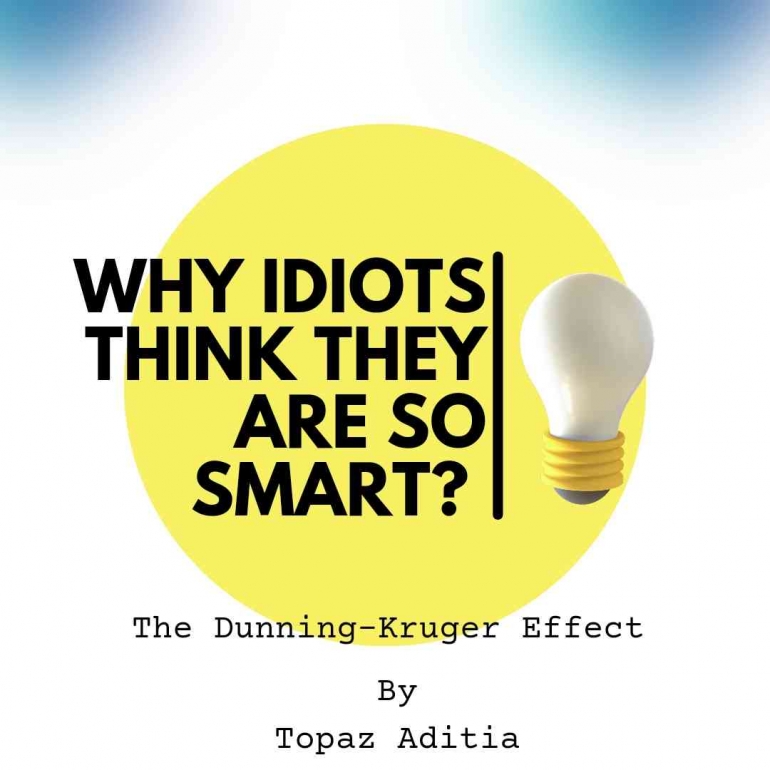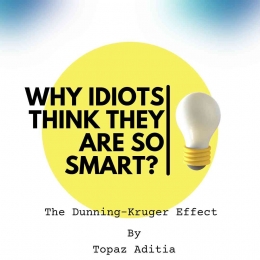Do you often find yourself getting into arguments over stupid stuff like why the earth cannot possibly be flat?
Or, whether the moon is genuinely made of cheese?
and in your own mind, you are almost 100 percent certain that the earth is obliquely spherical?
and the moon is unfortunately not made of delicious melty cheddar but, boring old rock?
Yet, incredibly you end up losing these arguments against or to the moronic people you know you should have won. Even after you provided them with countless irrefutable evidence. Yes, no matter what you say you, somehow, fail to change their mind or remotely shake their ostentatious self-confidence in their air earnest views.
Stupid Yet, Stubborn
Why is it so difficult to argue with stupid people? Why do they fail to listen to empirical evidence and instead, favor the wisdom of those noisy members who re-shared invalid news on Whatsapp groups? and why do they often think themselves far more intelligent than their words?
Neuroscientists think there are very real and fascinating reasons and explanations for this frustrating phenomenon. But, before we talked about those we must first establish whether our suspicions are true. Do people think they're smarter than they are?.
The Case Of McArthur Wheeler
Over the past 20 years two social psychologists have been attempting to answer this question, David Dunning and Justin Kruger. David Dunning was inspired to begin this research after reading a feature in the 1996 World Almanac about a Pittsburgh bank robber named McArthur Wheeler, who held up a bank at gunpoint in broad daylight without a mask. But strangely, his face was covered in lemon juice. When the police arrested him later at his home he said, "But, I wore the juice" he explained. How since lemon juices sometimes used as invisible ink and he thought that by covering his face in lemon juice he, would somehow, become invisible to other people and the security cameras. He apparently pictures himself whilst wearing the lemon juice before the robbery to confirm this theory. According to Wheelers own account, his face was not visible in the photo. Police were never quite able to explain this. But then again, this is a man who tried to make himself invisible with lemon juice.
Inspired by this blatant idiocy, Donning teamed up with Krueger and conducted a series of experiments. In which they got participants to rate themselves on their grammar, logical reasoning, and sense of humor. They then compared the participants self appraisals with the results of a series of tests. They asked them to complete the studies. All concluded that people consistently rate themselves as being far more competent at everything than they actually are. Most people in the studies performed far worse on the tests that they believed they had done.
A poll in 1980 conducted by a Swedish psychologist illustrated this nicely. When it showed that 93% of American drivers considered their driving ability to be above average. The research shows that overestimation of our talents is something we mostly all do.
Egocentric Bias
Natural egocentric bias first identified by psychologists in 1979. Turns out that the brain absolutely loves itself and does everything it can do to make itself look good. Repeated studies have demonstrated that the egocentric bias is present in all types and ages. For example, we tend to associate ourselves very closely with positive events and we take credit for things that other people have achieved such as, when our favorite sports team played well. Where as, when our favorite sports team loses we try to distance ourselves when they performed poorly. Similarly, we have no problem when we are over paid for work. But, we think it's a bit unfair when others are. We think that anyone who drives faster than us is a lunatic. Yet, anyone who drives slower is an idiot.
But, how does this relate to winning arguments? Basically the brain will do absolutely anything it needs to in order to save your face. Your brain must look good no matter what. Even if this involves ignoring facts, making up facts, or browbeating. Evolutionarily, the egocentric bias makes a lot of sense for self-preservation. The hunter that steals the prey from the other hunters is a lot more likely to survive. After all, our egocentric bias is so strong that even when we lose an argument, we convince ourselves in our own minds that we somehow won. As the legendary author Dale Carnegie of the seminal "How To Win Friends And Influence People" wrote, "you can't win an argument nine times out of ten".
An argument ends with each of the contestants more firmly convinced than ever that he/she is absolutely right. There is however, another reason why learned people often walk away from arguments with those who possess the intellectual aptitude of a veritable sea sponge.
Bulky Man Vs Scientist
Feeling wholly disappointed, there is a general fear amongst a human race of intelligence. Even amongst the intelligentsia themselves. This is a very real phenomenon that numerous neuroscientists have observed. True, we admire those of heightened intelligence. Yet, we simultaneously fear them. In modern society, we have no need to fear those of superior physical might over oneself (unless, you just made a pass at their wife). But, say you meet a huge bulky man at a dinner party with biceps larger than your entire torso. Most of us could converse with him rather happily without feeling intimidated. Yet, if we meet a weedy old professor of astrophysics at a dinner party who knows general relativity better than you know where you left your car keys, then suddenly and for reasons which are unclear to yourself, you feel intimidated by him.
Perhaps you don't. If so, congratulations, you're probably rather intelligent or a psychopath. (just kidding)
The reasons for this disparity is strangely related to the egocentric brain. We know how the body builder gained his mass by relentlessly pounding the gym and protein. We know that if we could be half as a store inclined as he, then we too could match his level of esteemed physical prowess and look like a Russian tank. Most importantly, we can usually predict his intentions and actions. We don't need to be as strong as him to know what he will probably do. If we piss him off, he hits us in the face. Yet, the scientists, unless we are intellectually superior than he is, and even if we are, then we will be unable to predict what he might say or do. He could say something that will reveal our lack of intelligence and make us look stupid. Thus, we fear him to compound this fear unlike the bodybuilder. Most of us will feel that even if we read a hundred of books we could never reach the scientists level of intelligence.
Crystallized Intelligence
Rather pessimistically, research supports the idea that many people are most likely unable to do so. We all have the ability to improve our crystallized intelligence of our bank of facts and knowledge. But, once we hit our mid-20s, the brain becomes less stick. It is not totally but, mostly set in its ways. The framework of your brain has been built like a car that has already been built. Parts can be swapped out and polished and chopped. But, ultimately, there's a hard limit to what one can do with its performance and thus. After our mid-20s, we lose the ability to improve our fluid intelligence. That is the ability to pick up new skills quickly, think on the spot, outwit your opponents, and problem-solve. So, if the scientist has not only greater crystallized intelligence but, also greater fluid intelligence than us, then we subconsciously know that this is a level of mental acuity that we are most likely unable to ever reach.
Biologically, we are hardwired to be scared of this prospect and we will feel a natural propensity to repel that (which we cannot). Better so, you made defensively say something rather stupid to the scientist. Even if it is a joke such as, "Oh a scientist..you think you're so clever don't you?". Even if he gave us no obvious reason to feel so intimidated, this has a reciprocal effect. Clever people are generally well aware of others fear and distrust of their intelligence. Also, feel less self-confident, when in an argument or debate would appear even if they know they could easily win.
Questioning more or less
Most people become intelligent because they have a proclivity to question their surroundings and their self. Intelligent people are generally more aware of the fact that they don't know everything. Especially in the scientific field. It is normal and expected for one to criticize their own theories and for their colleagues and peers to cross-examine them. Thus, smart people will always question whether they are as intelligent as they think they are.
Conversely stupid people are far less likely to question things including themselves. They tend to be less introspective. That's probably why they're still so stupid so they seem and are far more confidence in their moronic unfounded theories. They don't need to question them or see how they actually stack up when confronted with empirical evidence. Because they have never done this before and they possess not a shred of self doubt anyway.
The Dunning-Kruger effect proved stupid people rarely think of themselves as stupid. They have absolutely no idea that they have less intelligence than a donkey. There is a direct correlation between a lack of intelligence and one's high confidence in their own intelligence, and vice-versa. To put it simply, inept people think they are proficient and proficient people think themselves less so. So keep in mind that The Dunning-Kruger effect is not an absolute. But, a general trend.
Not all stupid people overestimate their intelligence and some intelligent people are very aware of how smart they are.... and will happily tell anyone who will listen.











